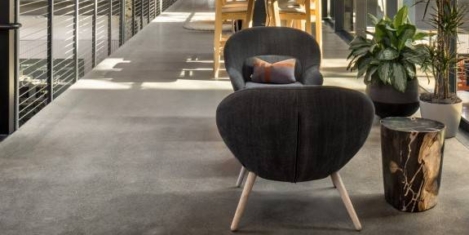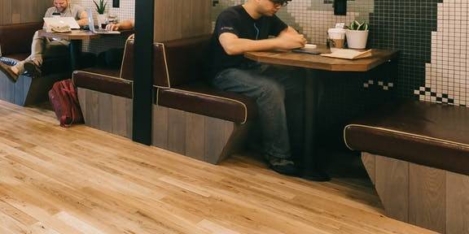To provide the best experiences, we use technologies like cookies to store and/or access device information. Consenting to these technologies will allow us to process data such as browsing behaviour or unique IDs on this site. Not consenting or withdrawing consent, may adversely affect certain features and functions.
The technical storage or access is strictly necessary for the legitimate purpose of enabling the use of a specific service explicitly requested by the subscriber or user, or for the sole purpose of carrying out the transmission of a communication over an electronic communications network.
The technical storage or access is necessary for the legitimate purpose of storing preferences that are not requested by the subscriber or user.
The technical storage or access that is used exclusively for statistical purposes.
The technical storage or access that is used exclusively for anonymous statistical purposes. Without a subpoena, voluntary compliance on the part of your Internet Service Provider, or additional records from a third party, information stored or retrieved for this purpose alone cannot usually be used to identify you.
The technical storage or access is required to create user profiles to send advertising, or to track the user on a website or across several websites for similar marketing purposes.
 With a rising retirement age and the prediction that by 2020, a third of UK workers will be aged 50 or over, new research from job board Totaljobs and recruitment firm Robert Walters found that many workers in their 50s find their career options and development opportunities are extremely limited.
With a rising retirement age and the prediction that by 2020, a third of UK workers will be aged 50 or over, new research from job board Totaljobs and recruitment firm Robert Walters found that many workers in their 50s find their career options and development opportunities are extremely limited.










 This summer, over half (55 percent) of US employers will offer employees the option to leave work early on Fridays or take the entire day off. The new survey by
This summer, over half (55 percent) of US employers will offer employees the option to leave work early on Fridays or take the entire day off. The new survey by 






 Socialising and drinking opportunities are some of the least enjoyable things about working in London, as loving their job and a chance to grow personally is more of an incentive for those who work in the Capital, a new report suggests. The survey of 1,000 London workers by Flexioffices, claims that 75 percent of employees in the city enjoy going to work for the personal development opportunities, training and the job itself. Flexible hours are becoming an increasingly enticing aspect of a job, with 21 percent of London workers liking their workplace because of the flexible hours available.
Socialising and drinking opportunities are some of the least enjoyable things about working in London, as loving their job and a chance to grow personally is more of an incentive for those who work in the Capital, a new report suggests. The survey of 1,000 London workers by Flexioffices, claims that 75 percent of employees in the city enjoy going to work for the personal development opportunities, training and the job itself. Flexible hours are becoming an increasingly enticing aspect of a job, with 21 percent of London workers liking their workplace because of the flexible hours available.













June 11, 2019
Moving the wellbeing debate beyond a fixation on stress
by Matt Weston • Comment, Wellbeing
(more…)